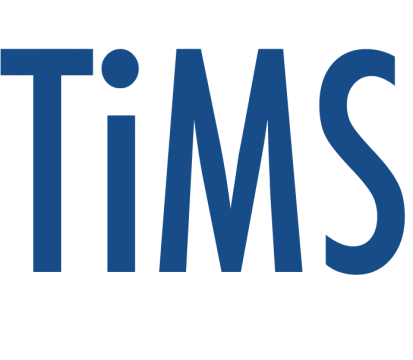Panel on sustainable tourism at marine environment week
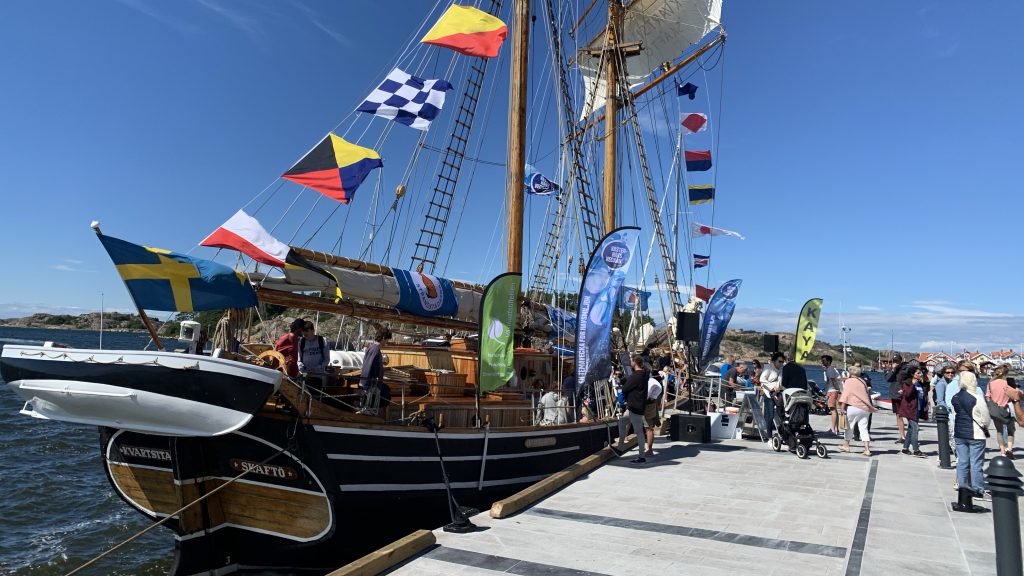
The opening of Västerhavsveckan – a week with focus on the marine environment – took place in Fjällbacka, on board the schooner Kvartsita.
TiMS researcher Eva Maria Jernsand participated in a panel discussion on sustainable tourism together with former environment and climate minister Isabella Lövin, deputy CEO of the West Sweden Tourist Board Marie Linde and Kosterhavet national park manager Anders Tysklind.
During the panel discussion, Eva Maria had the opportunity to define the concept of inclusive tourism and the other participants told how they work with inclusion. In connection with Västerhavsveckan, some of the panelists were also interviewed by the online magazine VGR Fokus. You can find the interview here:
https://vgrfokus.se/2022/08/turismen-okar-pa-vastkusten-sa-kan-den-bli-mer-hallbar/
Inclusion and participation in focus at tourism research conference
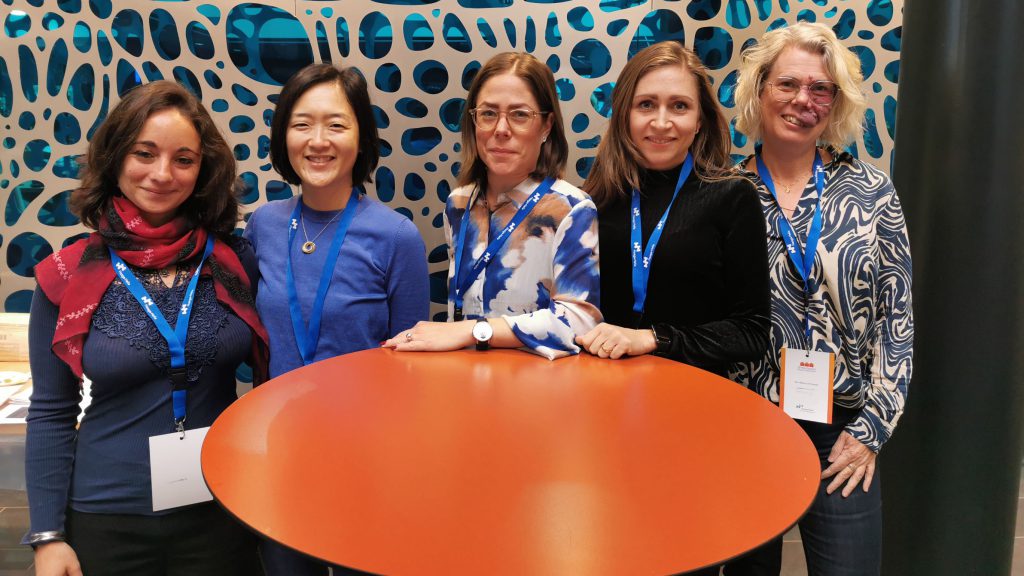
The quest for more inclusive forms of tourism is increasingly evident in practice and research. The 30th Nordic Symposium on tourism and hospitality research is one of many examples of this, with its overall theme of Participatory approaches.
Numerous presentations focused on accessibility, social sustainability, and the involvement of diverse stakeholders in tourism development. A group from the TiMS team presented research connected to the opportunities but also the complexities that lie in the increased focus on inclusive tourism.
The titles of the presentations given by TiMS researchers were:
Branding the deep nation? The racialized representations of the Image Bank of Sweden
Osanami Törngren Sayaka and Mattsson Katarina
Migrant communities as invisible but active stakeholders for inclusive tourism development: the case of VFR tourism experiences of Italians and Chinese in Sweden
Licata Sara Fiorella Viviana and Osanami Törngren Sayaka
Political and relational co-creation for inclusive tourism development
Kraff Helena and Jernsand Eva Maria
Stakeholder dialogue and relationship management in the Swedish tourism industry
Björner Emma
Find more information about the symposium in book of abstracts.
New article about multicultural food events
TiMS researchers Helena Kraff and Eva Maria Jernsands new article Multicultural food events – opportunities for intercultural exchange and risks of stereotypification, is now published as online pre-print.
The article aims to open a critical debate on multicultural food events by exploring barriers to inclusion and the influence of prejudice. Criticism aimed at misuses of multiculturalism in relation to food events and tourism is used as a theoretical lens for the analysis of two types of food events.
The findings illustrate how shallow interpretations of multiculturalism still influence tourism products and reinforce the norms they claim to counteract. In other words, tourism stakeholders need to gather critical insights about the influence of white hegemonies, whilst recognising the effect of their own bias.
Read the paper here (open access!): www.tandfonline.com/doi/full/10.1080/02508281.2022.2126922
TiMS researchers forming a EUTOPIA community on tourism and experiences
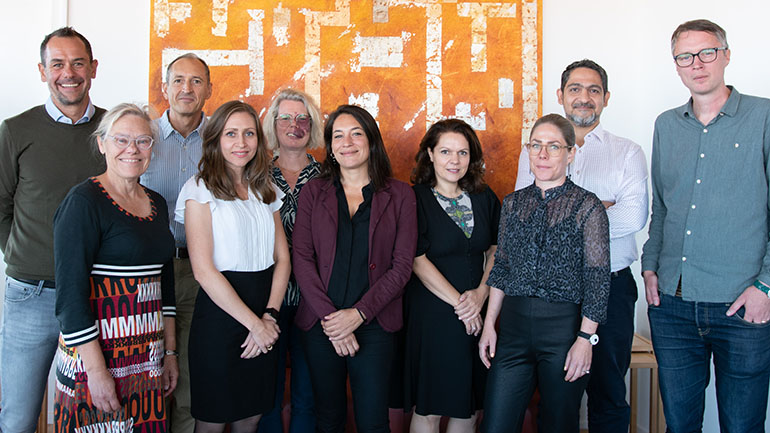
Emma Björner and Eva Maria Jernsand have initiated a European Union wide community of researchers and partners with a focus on tourism and experiences.
With funding from the European University Alliance EUTOPIA, they organized a first meeting in Gothenburg on September 8-9. In total, 29 people discussed possible joint projects and applications.
Partnering with the innovation programme Xperience Next, there were representatives from Göteborg & Co, Region Västra Götaland, BFUF, Halden municipality, Lindholmen Science Park along with researchers from Universitat Pompeu Fabra in Barcelona, Università Ca’Foscari in Venice, CY Cergy Paris Université and University of Gothenburg.
See also the interview with Emma (among others) in the news from School of Business, Economics and Law at University of Gothenburg:
https://www.gu.se/en/news/new-collaboration-with-european-tourism-researchers
Hybrid seminar on place making – connecting to place through social networks and more than human actors

Don’t miss our upcoming hybrid seminar in the series on design, tourism and place development, this time with the theme of place making, and how we can connect to places through social networks and more than human actors.
Date: Wednesday October 5
Time: 12:00-13:00 (CEST)
Location: University of Gothenburg – Academy of Design and Art, Kristinelundsgatan 6, room 310 (to your left after the main entrance
Online location: zoom (link to be sent after registration, zoom-room opens five minutes before the seminar)
Register here: https://forms.office.com/r/Qk99BRBAxV
Note that all participants are asked to register as there is a limit of how many people room 310 takes. Also, the registration provides you with a zoom link if you want to participate online.
For questions contact: Helena.kraff@hdk.gu.se
Program:
12:00-12:10 Introduction to the seminar series and this session by Helena Kraff, senior lecturer and researcher.
12:10-12:30 Sara Licata presents her research on Visiting Friends and Relatives (VFR) tourism in relation to migrant host’s personal networks’ influence on place participation dynamics
12:30-12:50 Christoph Matt, eco-social designer at Studio Matt presents the Design camp concept and its connection to post-humanistic perspectives.
13:00 -13:15 Discussion with questions from seminar participants
Information about the presenters:
Studio Matt, founded by Christoph Matt, is inspired by adventures, explorations, and translations in the great outdoors and its vast ecosystems. Keeping a wary eye on the blue planet while working with the human and more-than-human around the world. Constantly facing emerging issues with a rock-solid rucksack principle, multi-species focus, progressive design practices and by embracing a positive failure culture. Christoph is also an alumni of the Embedded Design program at Academy of Design and Art, University of Gothenburg.
Sara Licata has a multidisciplinary background in foreign languages and cultural mediation, tourism management, and migration studies. With a passion for mobility, travels and intercultural communication, she sees valuing diversity, inclusion and participation as a creative process of social change and development through respectful interaction and reciprocal understanding. In her research internship in the project the Role of Tourism in Multicultural Societies (TiMS) she worked on an exploratory case on migrant hosts’ personal networks’ influence on place participation dynamics, feelings and perceptions during VFR (visiting friends and relatives) tourism experiences in Sweden.
About the seminar series
The seminar is organized by the Centre for tourism and Business & Design Lab, both at University of Gothenburg. The purpose of the series is to achieve increased knowledge of and collaboration between actors who are at the intersection of design, tourism and place development. The series also intends to lead to new projects and constellations where actors from private and public organizations as well as teachers, researchers and students collaborate.
Centre for tourism
A cross disciplinary research platform that works in close collaboration with the tourism industry, and which aims to initiate and support increased knowledge development and professionalization within the tourism field. For more info: https://www.gu.se/en/tourism
Business & Design Lab
In Business and Design Lab, researchers with interest in interdisciplinary research in design, economics, artificial intelligence (AI) and technology meet. The aim is to foster dialogue between disciplines, and to understand and actively re-imagine the way we design our society and the economy. For more info: https://www.gu.se/en/bdl
Published article on packaging Swedish identity
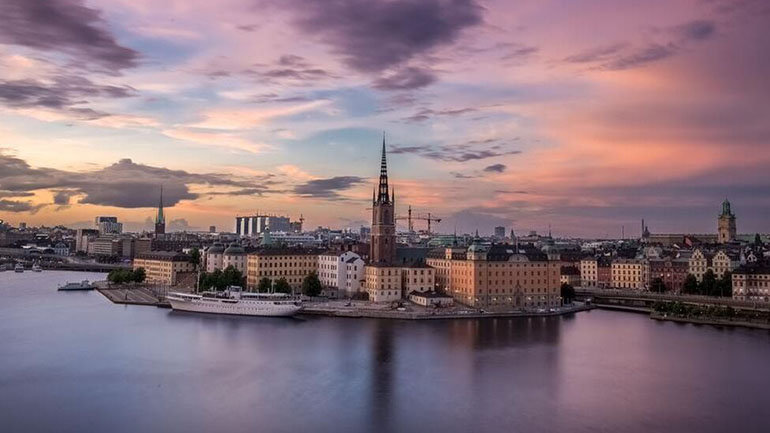
National identities and cultures are used to brand countries. But which identities and whose culture are promoted in this process?
In a new article, Sayaka Osanami Törngren and Can Seng Ooi examine the national branding project Curators of Sweden (CoS). The project used Twitter as a platform and each week a ‘Swedish’ person was chosen as a curator to tweet whatever they liked through the @Sweden account. The campaign started in 2011 and ended in 2018, resulting in more than 200,000 tweets.
The article explores the contradiction of CoS offering a cacophony of ‘diverse’ voices from Swedes but, at the same time, speaking with the ‘same’ voice.
Read the full article Representing Sweden: packaging Swedish identity through curators of Sweden
In August 2022, Sayaka and Can Seng Ooi published a blog post in Identities about their article. Read their blog post Packaging national identities.
Presentation of TiMS research at Advances in Destination Management Forum
Early June, Eva Maria Jernsand and Emma Björner participated in the 5th edition of Advances in Destination Management Forum, arranged at Linnæus University in Kalmar, Sweden.
Eva Maria and Emma presented their work-in-progress paper titled “Destination governance and social learning: Crafting Sweden as a sustainable destination”. The aim of this study is to explore the structures and processes needed for social learning in destination governance. The focus is on the development and branding of Sweden as a sustainable destination.
The two TiMS researchers have, in an action-oriented manner, followed a sustainability initiative facilitated by Sweden’s national DMO Visit Sweden over a period of two years.
Get to know one of our guest researchers in TiMS
Lillian Omondi is a lecturer at Maseno University in Kisumu, Kenya, and one of our guest researchers. We took the opportunity to ask her four questions about her research and her role in TiMS.
TiMS’ objective is to explore the role of tourism in multicultural societies. How does your research relate to questions of inclusion and tourism?

“My main aim in the research has been focusing on social inclusion in tourism and also for migrants. In one of my research projects, I have paid particular attention to the role of ethnic cuisine in fostering social cohesion within a context with over 40 ethnic groups represented and where ethnic enclaves sometimes cause friction. An article on this is in the pipeline.”
What has been your contribution in the research collaboration over these years?
“Based on the various research activities with migrant communities, I have contributed to a policy brief which provides recommendations to the county of Kisumu and its stakeholders on possible ways of making inclusivity a priority for migrants into the city. I have also contributed to joint articles with the rest of the project team in TiMS, one that seeks to explore the dynamics of working together, being that we are drawn from different backgrounds and disciplines, and another that looks at tourism experiences and how these may trigger feelings of inclusion or exclusion.”
Are there any good examples of inclusion and representation of diversity in the tourism development in Kisumu?
“In general, Kisumu is an inclusive city. It is not common to hear race-based complaints from international visitors who come to the city. Thanks to devolution, the city is continually working on improving different sectors; tourism being one of them.”
“Some of the weaknesses that may be highlighted by researches conducted are not necessarily by design but probably from years of tourism being run from the central government and hence not taking into consideration localized needs and solutions.”
What has been most valuable to you in the collaboration with the project team in TiMS?
“There are several disciplinary lenses to look at issues in society and all are important as they provide different perspectives and with these, different options to approach said issues. The multiculturalism in ‘TiMS’ is not just about tourism but also about the researchers in the project as well.”
Panel discussion on tourism and museums part in creating a sustainable society

TiMS researcher Emma Björner participated in a panel discussion about sustainable tourism and museums at the Swedish museums’ spring meeting on April 27.
Emma kicked off the panel by sharing how sustainable tourism is defined in research. She provided examples related to the three aspects of sustainability: environmental, economic and social.
Environmentally sustainable tourism is often tied to mode of transportation, and thus getting to and from a place in a sustainable way. It is also related to initiatives to get visitors to stay longer in a place. Economic sustainability is largely about tourism that benefits local businesses and the local community, for example through job creation and consumption of locally produced products.
Social sustainability is also related to tourism that benefits the local community; and tied to notions that visitors not only have rights to consume destinations but also obligations to contribute to the development of a place. Social sustainable tourism is also closely intertwined with inclusive tourism, and thus making destinations and tourism products available to all people.
“Sustainable tourism is also very much about contributing to new knowledge and stimulating deeper understandings. Tourism experiences and museums have great potential to contribute to a sustainable society through knowledge, which in turn can change behavior.”
The panel discussion also zoomed in on how museums can contribute to sustainable tourism, highlighting good examples and challenges, and focused on the way forward.
Lunch seminar: Sustainable hospitality industry
On April 27, TiMS researcher Helena Kraff was one of the speakers on a lunch seminar arranged by Centre for Tourism and the Network for sustainable hospitality industry (Nätverket för hållbar besöksnäring)
The theme was Sustainable hospitality industry in practice. Helena Kraff spoke about inclusive tourism in relation to multiculturalism.
Watch the recording of the lecture: here:
https://www.natverkethallbarbesoksnaring.se/eventinspelningar/
Lecture on inclusive tourism and place branding
TiMS researcher Eva Maria Jernsand gave a lecture on inclusive tourism and place branding in Gothenburg on 8 April, 2022.
The lecture was part of an arrangement organized by the Centre for Tourism at the University of Gothenburg, Göteborg & Co, and the European research project Festspace. About 80 event organizers, students, researchers and other people interested in events gathered to discuss how events can contribute to sustainable urban development.
Researchers from the Festspace project on inclusive festivals and events gave examples from European cities, which was then followed by a group workshop on the importance of inclusion and how organizations can work with inclusive events.
Research collaboration within the EUTOPIA Alliance
TiMS researchers Emma Björner and Eva Maria Jernsand are involved in developing research collaborations within the EUTOPIA alliance, which brings together operations and intentions of 10 regionally and nationally distinct European universities, whereof one is University of Gothenburg.
Primarily, they focus on Università Ca’Foscari University in Venice, Italy; Université Cergy Pontoise, Paris, France; and Universitat Pompeu Fabra, Barcelona, Spain. The purpose is to create a network of researchers focusing on tourism, the experience economy, and related fields, to pave the way for joint research projects, EU applications and educational activities, and to develop contacts between academia, public and private actors.
Course: Cultural Heritage and Tourism (Kulturarv och Turism)
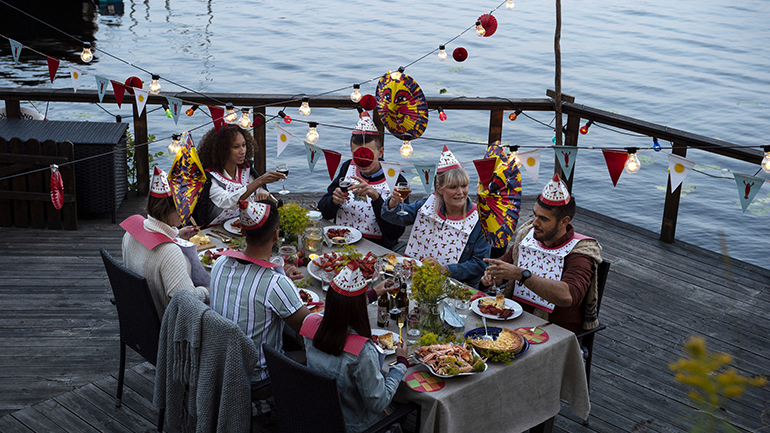
TiMS researchers are lecturers on a new course starting autumn 2022 at the University of Gothenburg. The bachelor level course is given in Swedish at a study pace of 50% and is divided into two modules, each on 15 credits (ECTS). The course is aimed at those who want to work with developing and presenting cultural heritage in a tourism context.
During the first module, Tourism, Society, and Cultural Heritage, we examine the complex interplay between actors, geography and structures in tourism and the tourism industry. We also study the history of tourism and focus especially on cultural heritage tourism.
Furthermore, the course introduces the concepts of cultural heritage and experience as well as the role of cultural heritage in the tourism industry. We analyze tourism, the tourist, and the tourism industry from a critical perspective with special emphasis on sustainability issues.
The second module, Cultural Heritage Tourism and Communication, deals with the conditions and development of cultural heritage tourism as well as cultural heritage communication and mediation. We study various forms of communication channels, such as signage, guidance, exhibitions, and digital communication.
Read more about the course here.
Hybrid seminar – Art and critical place making
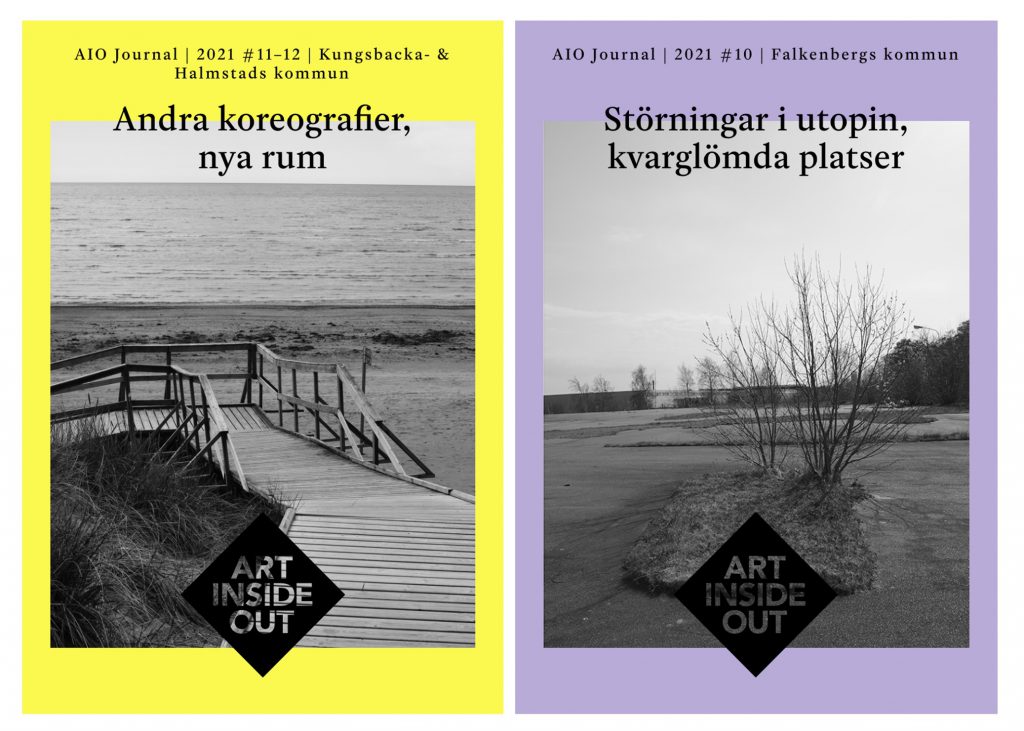
Don’t miss our upcoming hybrid-seminar in the seminar series on design, tourism and place development, this time with the theme Art and critical place making.
Physical location: HDK-Valand, Storgatan 43 – Room Bio Valand (to the right hand side after the entrance). Online location: zoom (link to be sent after registration, zoom-room opens five minutes before the seminar)
Register via this link*:
https://forms.office.com/r/kMVK08dzfS
*Note that all participants are asked to register as there is a limit for how many Bio Valand takes. Also, the registration provides you with a zoom link if you want to participate online.
Program Wednesday, 4 May:
12:15-12:20 Introduction to the seminar series and this session by Helena Kraff
12:20-12:40 Producer Davor Abazovic presents the artist residency Art Inside Out where artists use the Halland region as a base for the creation of place specific art
12:40-13:00 Professor Tyrone Martinsson presents his research, and his exploration of climate change through photography
13:00 -13:15 Discussion with questions from seminar participants
For questions, contact: Helena.kraff@hdk.gu.se
TiMS researchers explore decentralised place branding in a new publication
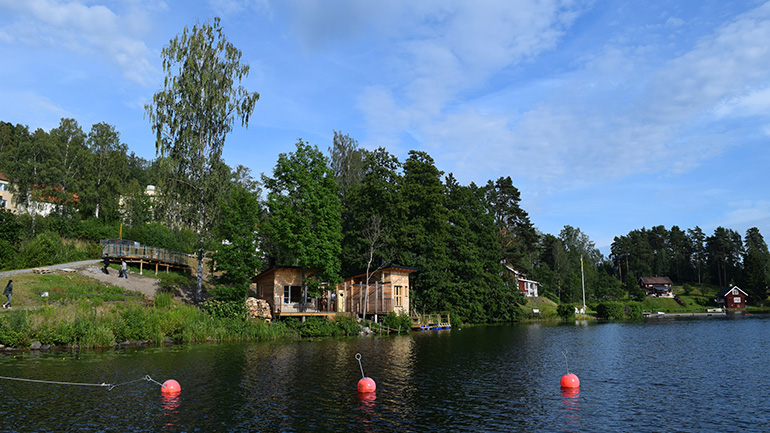
Increasingly, place branding is regarded as participatory and inclusive. Still, however, a central assumption in place branding is that there is a dominant organisation working strategically to organise the place-branding process.
In a paper recently published in the Journal of Marketing Management, TiMS researchers Emma Björner and Lars Aronsson explore how multiple authors create narratives and collectively contribute to the branding of the small Swedish town Dals Långed.
The researchers identify the various ‘place brand authors’ that contribute to the brand of Dals Långed. There is no dominant place-branding organisation coordinating the place branding process, but multiple authors – some more influential than others – that informs the brand.
Emma Björner has written about the paper in the Journal of Marketing Management blog. Read her blog post here:
Decentralised place branding through multiple authors and narratives
The paper is open access and can be read in full here:
Decentralised place branding through multiple authors and narratives: the collective branding of a small town in Sweden
Emma Björner from TiMS on inclusive and socially sustainable tourism

At Visit Sweden’s webinar on February 17, 2022, Visit Sweden presented its new brand platform and the promise “Together towards more conscious travelling”. Three experts from the academy shared thoughts on sustainable tourism. Emma Björner from TiMS was one of the invited experts.
She emphasized that tourism is an important part of a sustainable place development and community building, and that tourism can and should contribute to a sustainable society by changing systems and behaviours. Inclusive tourism, a key concept in TiMS, was also discussed during the webinar.
“Inclusive tourism means that all people, no matter their ethnicity, gender, class, age or other social, physical and intellectual characteristics and abilities, should have the opportunity to participate in the creation of destinations and tourism products, be able to benefit from them and experience them” said Björner.
“Inclusion is more and more emphasized when it comes to sustainable tourism, place branding and place development. We see that local populations increasingly are included, for example in the formulation of place-based visions and strategies, and in tourism-related development such as physical planning of tourism facilities.”
How the tourism industry can contribute to social sustainability in its daily activities, was also considered. Emma Björner said that the tourism industry can contribute to local employment and entry-level jobs for young people and migrants, and also mentioned the positive effects of promoting local culture and local tourism products. In the conclusion, she emphasized the role of the individual traveller.
“The individual traveller can also contribute to social sustainability to the destination and in general. One way is by respecting and showing interest in the local culture and people, and consequently contribute to cultural exchange and knowledge exchange” said Björner.
“As a visitor, one can also think about how to communicate about the place, during and after the trip, for example via social media, and try to give as accurate a picture as possible, and a picture that respects the culture of the place and the people who live and work there”.
The webinar is in Swedish. Watch the full webinar here.
